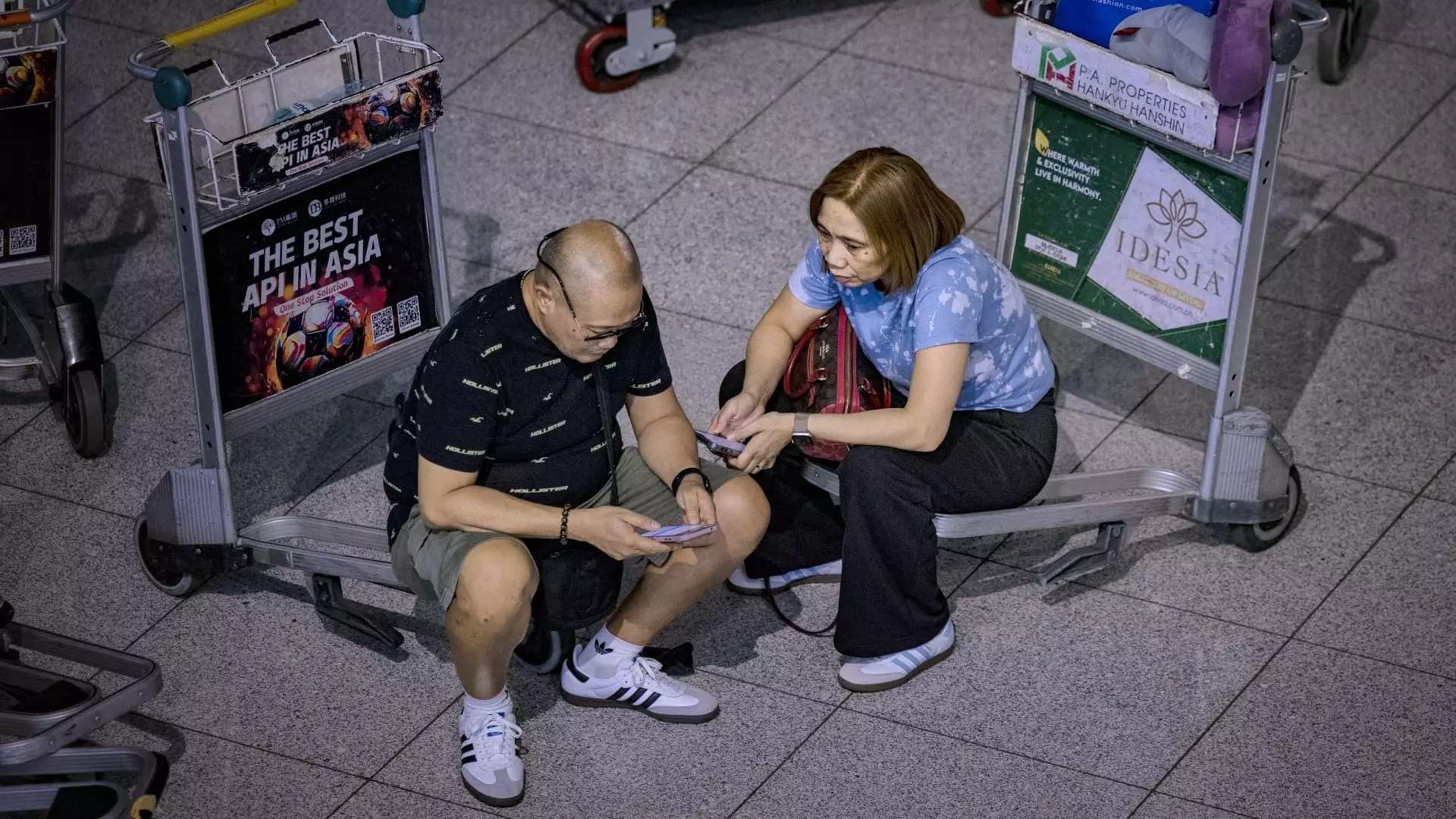The recent global IT outage that affected several airlines around the world was a massive disruption that left thousands of passengers stranded and delayed. The outage, which was linked to a tech update by cybersecurity giant CrowdStrike, caused chaos in the aviation industry as well as other sectors. The extent of the impact was so severe that even major institutions such as banks, stock exchanges, and airports were paralyzed, leading to widespread disruptions during the peak holiday season.
According to FlightAware data, over 38,000 flights were delayed globally, with more than 4,200 flights being canceled as a result of the IT outage. This had a significant impact on travelers, with approximately 9,200 delays and 2,650 cancellations affecting flights in and out of the United States. The disruptions were felt on a global scale, with airlines across Europe, the Middle East, the Americas, and Asia issuing updates to inform passengers about the situation.
In response to the crisis, airlines like American Airlines, Delta, and United worked to resume operations, but they still expected delays and cancellations. The U.S. Federal Aviation Administration (FAA) collaborated with airlines to address the residual technology issues and intermittent ground stops and delays at various airports. Additionally, the Secretary of Transportation, Pete Buttigieg, assured that transportation delays would be resolved and that services would return to normal by the following day.
While some airlines, such as Dutch airline KLM, reported that their IT issues had been almost completely resolved, others like Lufthansa and Eurowings faced minor disruptions. The impact of the outage varied across different regions, with some airlines experiencing more cancellations and delays than others. Aviation analytics firm Cirium highlighted the challenges faced by airlines on what was expected to be the busiest day of flights of the year since 2019.
The outage also highlighted vulnerabilities in airline systems, with reports of self-check-in systems going down at airports in Taiwan, Singapore, and Hong Kong. This raised concerns about the reliance on technology in the aviation industry and the need for robust backup systems to prevent future disruptions. It was noted that mainland Chinese airlines were not impacted by the outage due to their use of a different system, emphasizing the importance of diversification in technology infrastructure.
The global IT outage that affected airlines around the world underscored the critical role of technology in modern air travel and the potential risks associated with system failures. The response from airlines, passengers, and aviation authorities highlighted the need for preparedness and resilience in the face of unforeseen disruptions. As the aviation industry continues to rely on technology for seamless operations, it is essential for stakeholders to prioritize cybersecurity and system redundancies to mitigate the impact of future disruptions.


Leave a Reply